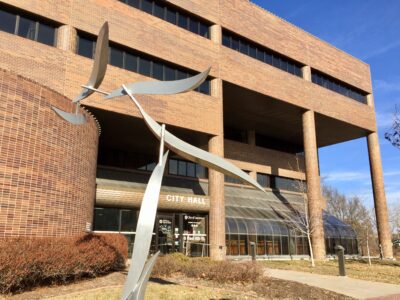Speaker: Saddam wanted hundreds of bombs
Former head of Iraq's nuclear development recalls rise and fall of country's program
Mahdi Obeidi was nervous about going to see Saddam Hussein.
As the former head of Iraq’s nuclear program, Obeidi’s sudden call into Hussein’s office in the late 1980s signaled a frightening shift in the country’s thinking about its newfound, still-secret nuclear strength.
“The nuclear reactor project had become a dangerous game,” he said.
Now, years later, as a war based on faulty information about weapons of mass destruction rages in Iraq, Obeidi told a Kansas University audience Tuesday night how his involvement helped fuel, and eventually uncover, Iraq’s secret nuclear program.
In his book “The Bomb In My Garden,” co-written by Kurt Pitzer, Obeidi describes in detail his realization in April 2003 of how close the world came to facing Iraq with usable nuclear weapons.
And just miles from where U.S. bombs ripped through buildings and roads, the secrets to Iraq’s nuclear program remained hidden beneath a lotus tree in Obeidi’s backyard.
The program, as he recalled it, began as he returned to Iraq after years studying in America, at the Colorado School of Mines.
Upon his return, he was enlisted in the Iraqi Atomic Energy Commission, where he directed materials operations, gathering the pieces necessary to create a nuclear reactor.
“Iraq was in the threshold of a great industrial revolution,” he said. “I felt I could help my country blossom.”
After years of struggle, and a reactor lost to a bombing in the early ’80s, Obeidi hunted for plans for a reactor 10 times as powerful as the oil-based machinery Iraq had been using.
The new materials were confusing. No one, including Obeidi, knew how to construct a magnetic centrifuge, the device that would allow Iraq to harness real nuclear power.
But it was necessary, he said – regardless of the millions the country paid for the technology. And by the end of the decade, the dream became real.
“I felt the sense of exhilaration, of scientific achievement,” he said.
But once that power was available, it was difficult to stop the link between enriching uranium and producing weapons.
That’s when Obeidi’s superiors called for a meeting to hear his thoughts about the technology’s “strategic requirements,” he said.
Hussein wanted hundreds of bombs, he said he learned later. Then, he said, Hussein wanted one bomb.
He couldn’t see the sense in it.
Eventually, it didn’t matter. After the first Gulf War, U.N. inspectors entered the country. Hussein gave a command to hide or destroy everything about the nuclear program.
The program – after reaching such heights so quickly – was gone.
The point, Obeidi told the student-laden audience, was that the nation of Iraq, with very little previous knowledge or resources, came within a relative hair of making a nuclear bomb.
Iraq didn’t have any weapons of mass destruction when the United States invaded in 2003, at least not to Obeidi’s knowledge, he said. Most of the secrets to the world’s most dangerous weapon had been buried in his backyard for a decade.
But the world then came too close to having the bomb in the hands of an unstable leader, he said.
“There’s no doubt in my mind we could have produced dozens of nuclear weapons within a few years,” he said.
Now, Obeidi told the crowd, it’s up to the world to ensure it never happens again.



